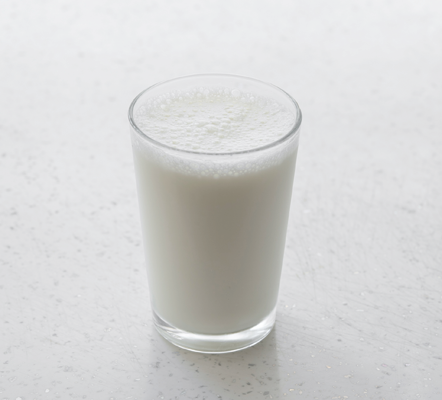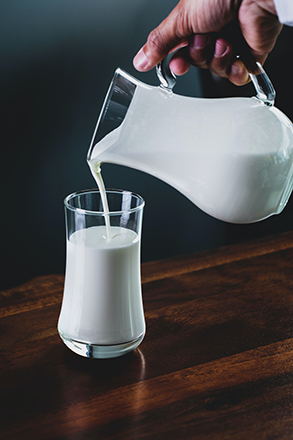You are here
Use of powdered milk in dairy production stirs objection
By Maria Weldali - Mar 01,2023 - Last updated at Mar 01,2023

Representative image (Photo courtesy of unsplash/Engin Akyurt)
AMMAN — The National Society of Consumer Protection (NSCP), on Wednesday, expressed its firm opposition to permitting the use of powdered milk in dairy production.
This comes following a consultative meeting which examined the potential of using limited amounts of powdered milk in dairy products.
During a meeting at the Ministry of Agriculture on Tuesday, Agriculture Minister Khalid Hneifat pointed out that there is a decrease in the volume of milk received from dairy farms due to the current prevalence of foot-and-mouth disease (FMD), which might affect the availability of dairy products in sufficient quantities within the coming weeks, and particularly during the holy month of Ramadan.
Hneifat added that “milk production recovery will be gradual, and might take a couple of months”. Therefore, the use of powdered milk in limited amounts is being discussed in order to cover the market needs of dairy products.
The meeting was attended by head of parliamentary committee on agriculture and water Mohammad Al Alaqma, Jordan Food and Drug Administration (JFDA) Director General Nizar Mhaidat, representative of the Industry, Trade and Supply Ministry Wael Kloub, the Amman Chamber of Industry (ACI) CEO Nael Al Husami, and two representatives of the Jordan Standards and Metrology Organisation (JSMO), and representatives from a number of dairy companies.
To further understand the Agriculture Ministry’s orientation concerning the use of powdered milk, The Jordan Times contacted the ministry’s spokesperson, who was not available for comment.
Regarding the quantities of milk produced, Chairman of the Dairy Cattle Cooperative Laith Al Hajj told The Jordan Times that “dairy farms have been significantly impacted by the FMD”, Although recovery rates have improved with no new FMD cases, the milk yield has decreased, he added.
The NSCP told The Jordan Times on Wednesday that “fresh fluid milk is the basis of dairy production, and there is no other alternative.”
The society added that the decision goes against the Jordanian standard No. 135 of 2018, which stipulates that pasteurised fresh milk should be used in dairy production, instead of dry or reconstituted milk.
Mohammad Obeidat, head of the NSCP, said in a statement sent to The Jordan Times, that “the decision is unjustified, and milk quantities are more than enough for local market needs,” adding that the daily milk production is 1000 tonnes.
Speaking with The Jordan Times, Alaa Awad, a Jordanian consumer, said that “yoghourt and other dairy products are among the most consumed products in Jordan. Using dry milk instead of fresh milk in the production of these products only means receiving lower nutritive value”.
Related Articles
AMMAN — Milk yield has decreased by around 20 per cent over the last period, according to stakeholders.“Every day, between 600 to 700 tonnes
AMMAN — Price increases on dairy products will hold off as long as milk supplies are sufficient, according to a statement from the hea
AMMAN — The Ministry of Agriculture on Monday announced that it would intensify measures to prevent the illegal use of powder milk to manufa












